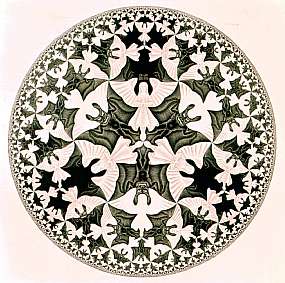“‘And in the last days it shall be, God declares, that I will pour out my Spirit on all flesh, and your sons and your daughters shall prophesy, and your young men shall see visions, and your old men shall dream dreams…'”
—Acts 2:17 ESV
I’ve come to the melancholy realization that youth is departing and old age arriving. Gray is the new cast of my hair. And are those…jowls?
Sigh.
At such times, I find comfort in the Scriptures, but even there resides the lament of the aging. Abraham and Zechariah leap to mind, with their “but” responses in light of God’s revelation. “Too old, God. Dried up. Useless for your task.”
Except it wasn’t true, was it?
I also recall the prophet Joel’s statement from God regarding old men dreaming, and Peter’s use of the prophet’s pronouncement as an anchor for the New Covenant.
The young men get the sexier, more startling revelation: visions. The future. The pressing need. The warning. A guy walks into the room and proclaims he had a vision, and everyone perks up. Being called a visionary is a positive that sets one apart from the greater mass of humanity.
Not so the dreamer, though. Get called a dreamer, and it’s a knock. Out of touch. Tilting at windmills. Fantasies. Won’t come to much. Anyone can dream. Nope, nothing special at all.
Old men, the ones with gray hair and jowls, dream.
Hey, I may not be 21 anymore, but I’m not ready for a porch-based rocking chair yet.
God gives dreams to old men because young men can’t handle them as well. Here’s the truth about dreams and why the older, wiser man (or woman) receives them:
1. Unlike visions, dreams pose puzzling questions older people are more experienced to answer.
Both visions and dreams can be strange. The Bible is filled with bizarre imagery that people receive in dreams and visions. The difference is that God tends to narrate visions as they happen. Dreams don’t get that same explanation. There’s no hand-holding or convenient running commentary in a dream.
What is the point of experience in life? To apply it. Old folks dream because they have the life experience to make sense of the imagery in dreams without annotations for what they see. God trusts the elders who have walked with Him for years to understand more readily because they know the character of God. They understand life in ways the inexperienced don’t. God entrusts dreams to those who can call upon a storehouse of knowledge or who have the walk with God down pat and can more readily tap into His supernatural wisdom.
2. Dreams bring older folks—and those around them who will listen—peace by taking the community back to the past and to the familiar.
In our youth, we sought out our elders to reassure us and lend their wisdom to us when we were troubled and uncertain. Unlike visions that often show disturbing, confusing images, dreams are associated more with a peaceful repose. Dreams are a sanctuary, a nocturnal sanctum. In dreams, we may see unusual combinations of people, places, and things, but they are usually already known. The past lives on in dreams. We recall the good times. What is lost or gone is alive and present again, and we can find comfort in knowing that nothing good is lost forever in God’s economy.
Dreams are the means by which the elderly help others recall the good times. When times aren’t good, the old folks serve as the community well to bring refreshment to others through their dreams.
That noted, being old also brings the burden of having seen too much. Dreams are not a mind bleach, but they do temper all the horrors and sadness that come with accumulated wisdom and life experience. Dreams reframe the good times that are past by bringing them, again, into the present as a balm.
3. Dreams help us recall anew what once worked well.
We tend to forget past solutions. Even wise, old folks. A seasoned mind is a bit more cluttered, and like a closet filled to the ceiling with life’s accumulations, wading through that mess to find the dojigger that does that one thing we need to do right this second…well, it can seem a daunting task.
Dreams allow experienced folks to cut through life’s clutter. They help reconnect with the past and what worked once so we can reuse that once-buried truth again. Because there really is nothing new under the sun.
4. Dreams allow seniors to recast the past and what is already known to form new solutions.
You know what they say about deep waters. Because the well of a life lived long with God is deep, the raw materials for new solutions may exist, just unseen.
Dreams are God’s way of remolding those raw materials of the past into new realities. Yes, the young men may see in their visions what is yet to be, but through dreams their elders can see the truths of the past combine in new ways to make something just as fresh and exciting.
Aren’t dreams intriguing when they bring together the disparate elements of life into one, impossible tableau? In a dream, what does it mean when a deceased parent, your soon-to-be born grandchild, and an old boss from a summer job three dozen years ago show up at your dream breakfast table and chat about life? What may God be saying through that impossible encounter? And how may that help others?
5. Dreams can also reveal the future and alert us.
To the one God has given much, much is expected. A life rich in God-given experience is a bank from which the banker invests in himself and others. Visions aren’t the only means of seeing what is to come. Dreams also are revelatory—only they don’t come with as many footnotes. God expects the person made wise with experience to fill in the annotations that aren’t there. Visions are for the raw. Dreams are for the already tested.
One of the most visited posts on Cerulean Sanctum is “God Speaks Through Dreams.” It’s so highly ranked because it’s one of the most heavily Googled. People are looking to make sense of their dreams. And people wonder if God is talking to them in those dreams.
If you are older, know that your dreams matter. God has something to say to you who are experienced with life, and He can do it through your dreams.
You matter to God’s Kingdom. Your dreams, your experiences with life and all its joys and sorrows have value to yourself and to others. Visions from the young may look great on the surface, but there is a surpassing value in dreams that give relevance to the seasoned saint, because God needs the service of everyone.


 I believe God speaks to us in dreams.
I believe God speaks to us in dreams.